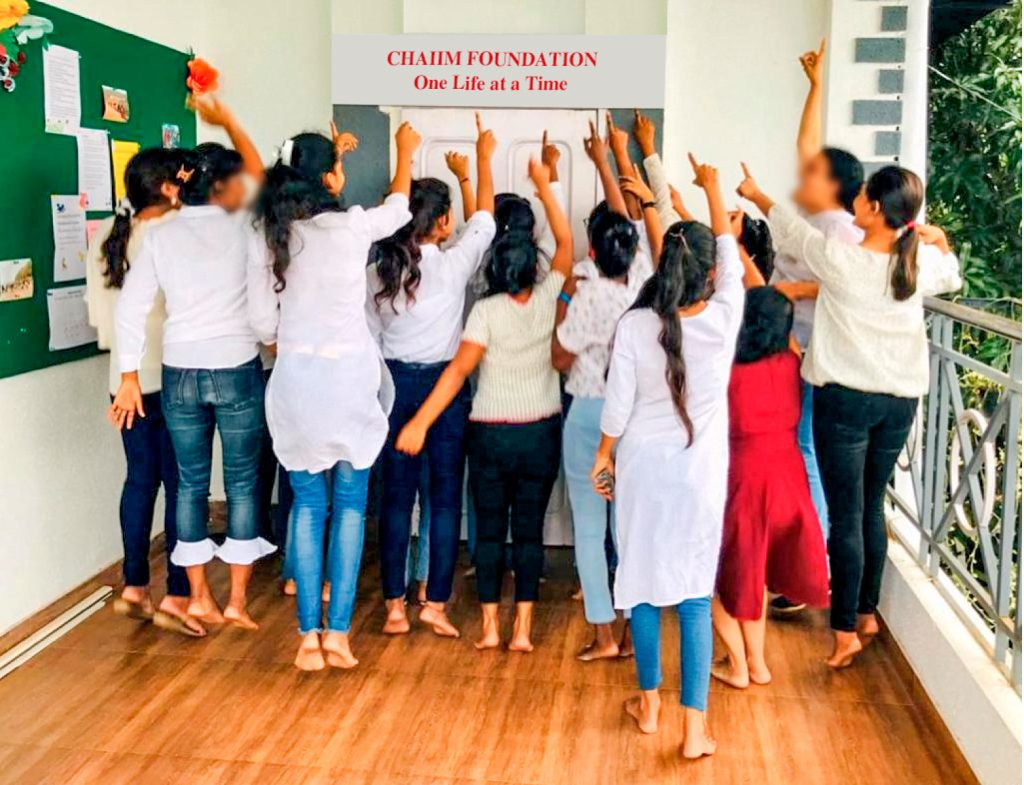This is a project that fits bang into Rotary’s core ideology of DEI — Diversity, Equity and Inclusion. Thanks to the herculean efforts of past president of RC Bombay Airport, Rajesh Agrawal, with longstanding support from two corporate majors — Vedanta Foundation and D-Link Academy — a rare community initiative has been launched in Mumbai for 20 teenaged girls and young women (14 to 24 years) rescued from the metro’s infamous flesh trade.

Working in partnership with the Chaiim Foundation, the Rotarian, who is the chief training and learning facilitator of RI district 3141, has successfully ensured that a computer skill centre established at the Chaiim Foundation has become operational in Borivali. To begin with, these women will be given basic computer skills. Giving details of the project to Rotary News, Agrawal said, “These girls know very little about computers; almost all of them are school dropouts and don’t even know how to switch on a computer. So through trainers, they are being taught how to open a file, work on it, save it, etc.”
These girls know very little about computers; almost all of them are school dropouts and don’t even know how to switch on a computer.
– Rajesh Agrawal, past president, RC Bombay Airport
These girls, he adds, have been rescued by the police through special operations and handed over to the Chaiim Foundation, whose objective is to rehabilitate those rescued from human trafficking. According to the Foundation’s website, every such survivor is put through a three-year rehabilitation programme where she is encouraged to make “safe and good decisions, and trained to earn a decent livelihood.” Apart from rehabilitation of the “survivors of human trafficking, we also promote the welfare of the marginalised, the poor, disadvantaged and exploited, irrespective of religion, caste or gender,” it adds.

Agrawal says a unique aspect of this ongoing project, on which he has been concentrating for several years before it went off the rails during the Covid years, is that “the sponsoring club does not have to spend a single rupee for this project.” That is because, he adds, the mega bucks required for this community initiative come from both the corporate entities through CSR.
Vedanta and D-Link will provide the hardware, software, trainers and training facilities. He recalls that when Prafull Sharma was the governor of RID 3141 “we had done 20 such centres. I had put together this strategic partnership after coming to know during that time that both these corporates were doing such training as their CSR activity.” He recalls that in 2017, when he was once seated at an MTNL office in Mumbai, he saw a D-Link placard which said they were going to train people so that they would get jobs. “So I called a D-Link executive, and from that time we are having this partnership with them.”

On the young women rescued from human trafficking, which cities they come from, etc, Agrawal says “since this is a very sensitive issue and there are so many undesirable elements in the community who want to exploit them and benefit from them, we are not allowed to interact with them, seek any details or take their photographs. I must have gone there so many times, but I say hello to the girls from a distance of 10 to 15ft. If people are allowed to talk to them, all kinds of advice will be given, which is not desirable as surely none of the girls want to be reminded of their past.”
But he does share some of the heartrending stories he has heard about the rescued women from the social workers and NGO representatives. One very good-looking girl, he says, had passed through four brothels in four different cities, before being rescued by the police in Mumbai. In another case, in a small town, when a girl left her house in the evening, she was raped by four men. “Her family wanted nothing to do with her and rejected her; somebody told her I’ll take you to Mumbai and get you a job, and she ended up being trafficked to Mumbai.”

He says the Rotarians work with many NGOs and so far, have helped to rehabilitate 200 people, including survivors of human trafficking, and helped them get jobs in different areas. The skills given through such centres, many of them in villages, include sewing, tailoring and many different crafts, and a typical training course lasts for some eight weeks.
He estimates that through partnership with both these corporate majors the Rotarians have managed to generate a value of at least a few crore rupees… “I would say over ₹9 crore, through all the components of the different kinds of skills and training we’ve provided over the last few years to different batches of young people.”
He is next planning a project where the women rescued from human trafficking can be given training as beauticians. They could be registered or linked to service providers such as Urban Clap or Urban Company, and “when they go out to provide service, nobody would know their background, and so will not be able to humiliate or embarrass them,” he adds.






